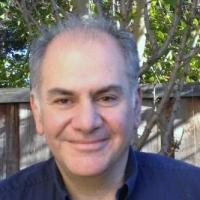SystemX Affiliates: login to view related content.

Just when 4G LTE deployment has taken off globally, 5G is upon us, and with it the opportunity for a major upgrade in mobile technology. So the time is right to discuss mobile technology trends. This talk will be organized in two parts. First, I will discuss what is happening in LTE evolution and 5G in terms of standards plans, and the main technologies being proposed, such as large MIMO and beamforming. The scarce resource of any wireless system is spectrum; they’re not making any more of it. Traditionally, mobile networks have operated in licensed, dedicated spectrum, while other wireless systems such as WiFi and Bluetooth have operated in unlicensed spectrum. The spectrum regime distinction has permeated design priorities in the two camps, resulting in very different systems. But now the clear boundaries are breaking down; LAA (licensed assisted access) is a mobile technology proposed for unlicensed spectrum. In the second part of the talk, I will raise some questions about our current assumptions on mobile technology trends. In particular, 5G has been associated with millimeter wave spectrum, where large bandwidths will presumably be made available. Future spectrum allocations for 5G have not occurred yet, and will be affected by a complex web of geopolitical considerations. What happens if spectrum remains the scarce resource? What if we get awkward disjoint allocations, inconsistent across regions, as we do now? It could get even more interesting: In the 3.5GHz band, the FCC is considering a multi-tier access policy, mixing licensed and unlicensed regimes. I speculate that LAA technology may turn out to be an early proof point of a new landscape of spectrum access, and may inform future spectrum policy.
Ali Khayrallah has been with Ericsson since 1995 in various research positions, first in Research Triangle Park, NC, and now in San Jose, CA, where he is engineering director. He has contributed to the development of many mobile and wireless technologies, including 5G, LTE, WCDMA, Bluetooth, mobile satellite etc. Previously, he was on the faculty of the University of Delaware. His career interest is leadership in research, technology and innovation. His personal research interest is in information theory and its applications to wireless. He graduated with a Ph.D. and an M.S. from the University of Michigan, Ann Arbor, and a B.Eng. from the American University of Beirut. He holds more than 100 patents. In a nutshell, he loves to drive ideas from basic research to practice.


